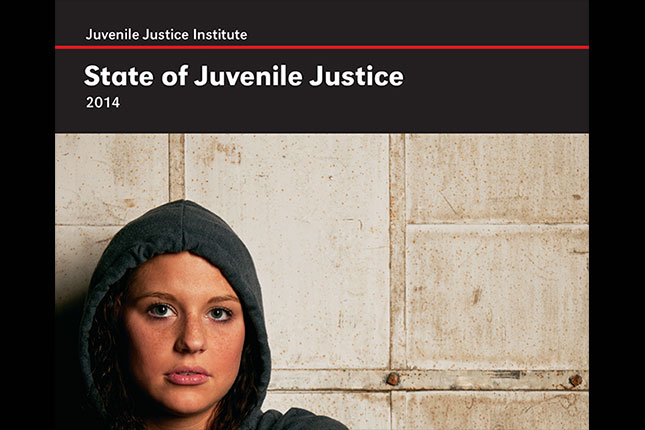Juvenile Justice Institute Identified as an Effective Support Center for Evidence-Based Practices
A new publication by the National Center for Justice Research about state support centers for evidence-based practices in juvenile justice features a case study of the UNO Juvenile Justice Institute as an example of an effective support center.
- contact: Anne Hobbs - Juvenile Justice Institute
- phone: 402.476-0113
- email: ahobbs@unomaha.edu

Omaha – Juvenile justice professionals are increasingly expected to demonstrate that the policies, programs, and practices they use are based on reliable, research-based evidence. To gain a better understanding of how states support evidence-based programs and practices in juvenile justice, the National Center for Juvenile Justice conducted state-by-state (including the District of Columbia) inquiries to identify legislation, policies, or positions on evidence-based programs and practices in juvenile justice.
The analysis determined that only 11 states met the definition for an operational state support center. Three of the state support centers were selected for an in-depth review based on the centers’ effectiveness. The report provides a brief description of each site and an analysis of each example across four characteristics of effective support centers: 1) a shared vision; 2) a high level of commitment; 3) capacity to collect, process, and report data; and 4) ability to connect researchers and practitioners.
UNO's JJI was the newest support center to be included in the report.
The report, Evidence-Based Policies, Programs, and Practices in Juvenile Justice: Three States Achieving High Standards Through State Support Centers, by Douglas Thomas, Nina Hyland, Teri Deal, Andrew Wachter, and Samantha Zaleski, is available on the National Center for Justice Research website.
Several important lessons can be taken from Nebraska’s JJI experience.
Below is an excerpt from the report, about lessons learned from the JJI case study. These lessons illustrate why JJI was selected as an example of an effective support center.
"Several important lessons can be taken from Nebraska’s JJI experience.
First, states should give local communities a voice in deciding which programs to implement to meet their specific needs and what data are meaningful to collect. State regulations that require specific programming and performance measures may not be suitable for every community, potentially wasting resources and limiting opportunities for successful youth outcomes.
Secondly, states should support efforts that result in the collection of meaningful and consistent data. Too often community programs are left to design their own data collection strategies and required to report irrelevant performance measures. By creating a modest, research-informed data system that meets the needs of state-level reporting and is meaningful to the operation of the specific programs (the JDCMS), Nebraska has set itself up to monitor, evaluate, and improve existing diversion programming.
Finally, it is important to instill a culture of learning throughout the system. This can be encouraged by offering opportunities for practitioners to learn directly from researchers and for community stakeholders to weigh in on the extent to which research designs and expectations are reasonable and meaningful. As the JJI demonstrates, system improvements are well within reach when researchers are willing to go into the field and work hand in hand with practitioners." (p. 6)